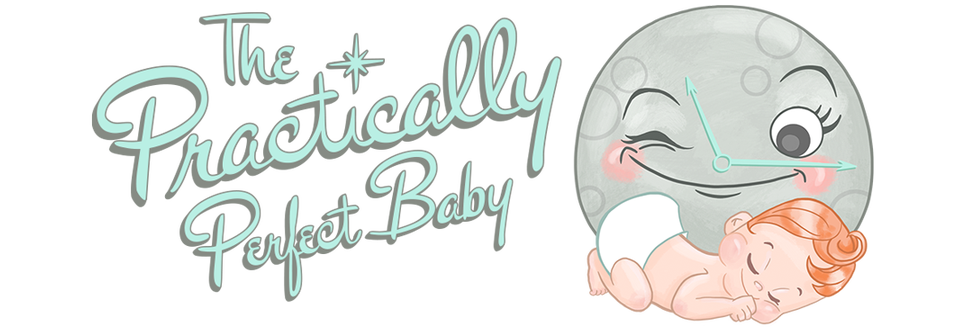The Baby Blues versus Postpartum Depression
Whatever surprisingly negative emotions you might be feeling in the days and weeks or months after your baby arrives…rest assured, you’re not the first to feel them. It can totally take you by surprise…after all, aren’t you supposed to feel euphoric and all “June Cleaver?” It’s all too common a post delivery, physical response and you just can’t blame yourself! What you can do is get help. And there is relief and help, for all of it — whether it’s the baby blues or postpartum depression. So, how can you tell the difference? Hopefully this will help you determine and quickly get help accordingly:
The Baby Blues
Many, many women have the baby blues in the days after childbirth. Common symptoms include:
-mood swings (elation and joy one minute, sadness and tears the next)
-feeling sad, anxious, stressed, overwhelmed
-feeling weepy, frustrated, vulnerable
-forgetfulness (a.k.a. “Mommy Brain”)
-crying spells
-loss of appetite
-trouble sleeping
The baby blues most often go away between a few days and two weeks. The symptoms are not severe and do not need to be treated by a doctor. It may take you by surprise that you are experiencing the baby blues during such an exciting and joyful time, but it’s really normal and common (50-80% of new moms report experiencing it). It’s that the pregnancy hormones are rapidly leaving your body, plus you can’t underestimate what an enormous change a new baby is to your life!
Postpartum Depression
If you have postpartum depression, you may have any or all of the symptoms of baby blues listed above, but your symptoms may also include:
-thoughts of hurting the baby**
-thoughts of hurting yourself**
-not having any interest in the baby
-thoughts of not being capable of properly caring for the baby
-difficulty sleeping at night when the baby sleeps
-hopelessness
-anger
-deep sadness
-low self esteem
-lack of energy (that rest doesn’t take care of)
Postpartum depression needs to be treated by a doctor because postpartum depression is more than just feeling “blue” or “down in the dumps” for a few days or weeks — it’s a serious illness that involves the brain. With depression, sad, anxious, or “empty” feelings don’t go away and interfere with day-to-day life and routines. These feelings can be mild to severe.
How to Tell the Difference
The symptoms of postpartum depression last longer and are more severe. If you have any of the symptoms of baby blues or depression for more than 2 weeks, call your doctor. She can figure out if your symptoms are caused by depression or something else.
Postpartum depression can begin anytime within the first year after childbirth, whereas the baby blues most likely occur in the first few weeks after delivery. If your symptoms come on after the first month postpartum, it is more likely that you are experiencing postpartum depression than the baby blues.
The symptoms of postpartum depression don’t go away, whereas the symptoms of baby blues do.
What to Do About It
Baby Blues Help:
-Rest as much as you can. Sleep when the baby is sleeping.
-Don’t try to do too much or try to be perfect.
-Ask your partner, family, and friends for help.
-Make time to go out, visit friends, or spend time alone with your partner.
-Discuss your feelings with your partner, family, and friends.
-Talk with other mothers so you can learn from their experiences.
-Join a support group. Ask your doctor about groups in your area.
-Don’t make any major life changes during pregnancy or right after giving birth. Major changes can cause unneeded stress. Sometimes big changes can’t be avoided. When that happens, try to arrange support and help in your new situation ahead of time.
Postpartum Depression Help:
Call your doctor. Tell your partner. Get relief.
Some women don’t tell anyone about their symptoms. They feel embarrassed, ashamed, or guilty about feeling depressed when they are supposed to be happy. They worry they will be viewed as unfit parents. But any woman may become depressed during pregnancy or after having a baby. About 13% of pregnant women and new mothers have depression. It doesn’t mean you are a bad mom at all! And it is simply not a mother’s fault, ever.
Your doctor can ask you questions to test for depression. Your doctor can also refer you to a mental health professional that specializes in postpartum depression. The good news is that most people with depression get better quickly with treatment. So don’t wait to get relief.
Read more:
“Brain Changes Seen in Postpartum Depression” WebMD
“Baby Blues or Postpartum Depression?” Psychology Today
Read this new study showing ppd significantly lowered in women who received epidural during labor.
**If you think you can’t keep from hurting yourself, your baby, or someone else, see your doctor right away or call 911 for emergency medical care.
For other resources, call:
-The National Suicide Hotline at 1-800-273-TALK (1-800-273-8255).
-The National Child Abuse Hotline at 1-800-4-A-CHILD (1-800-422-4453).














